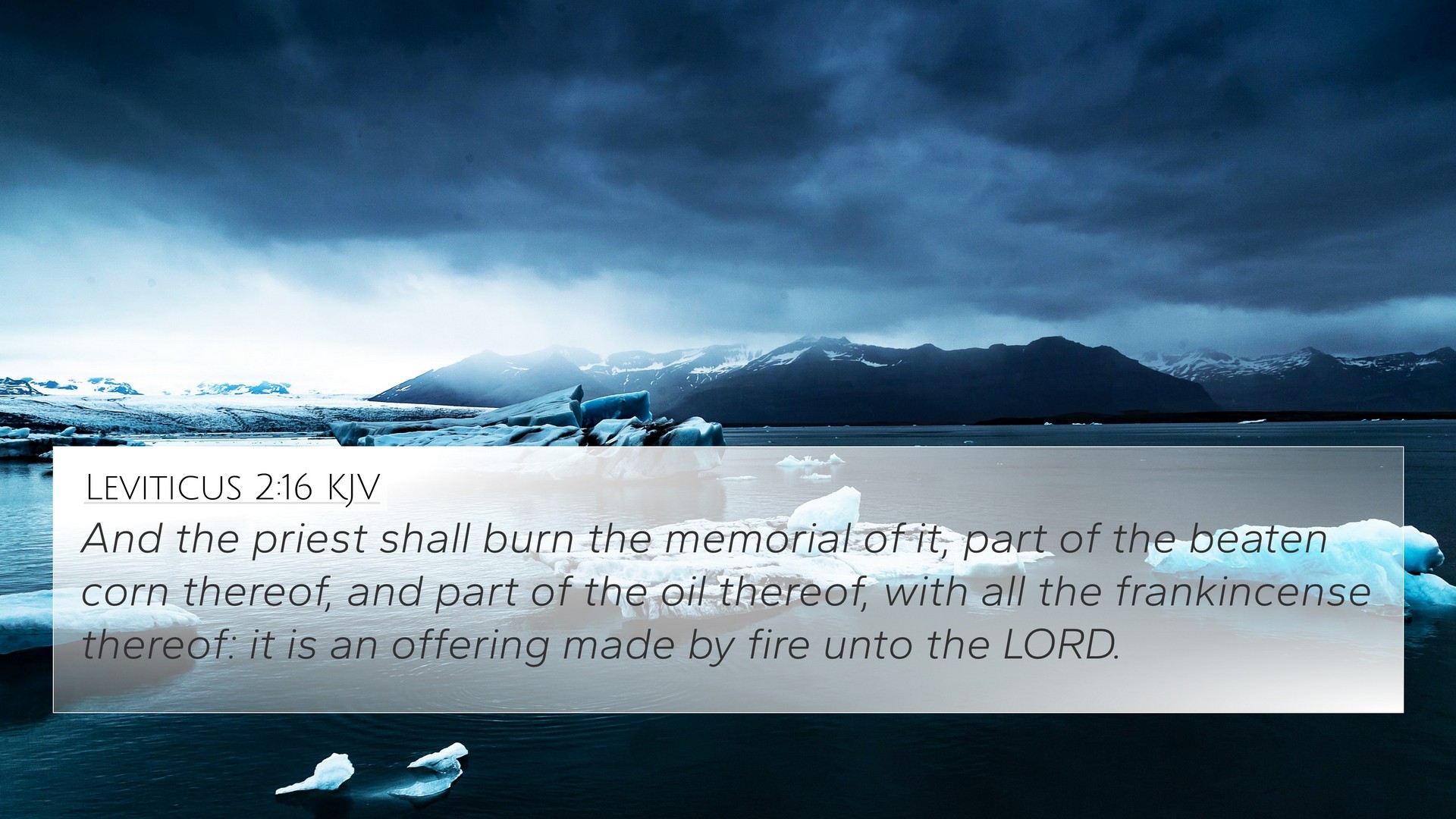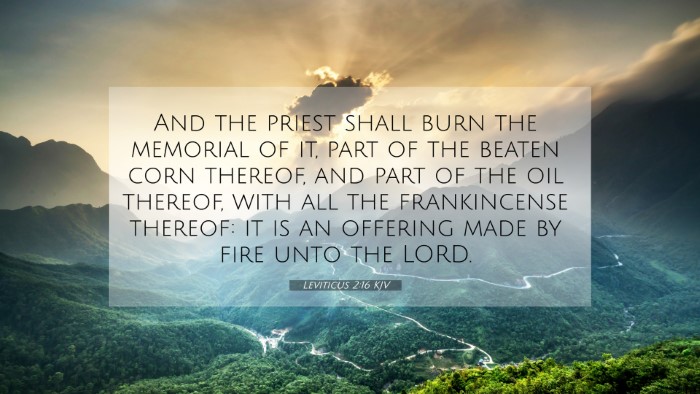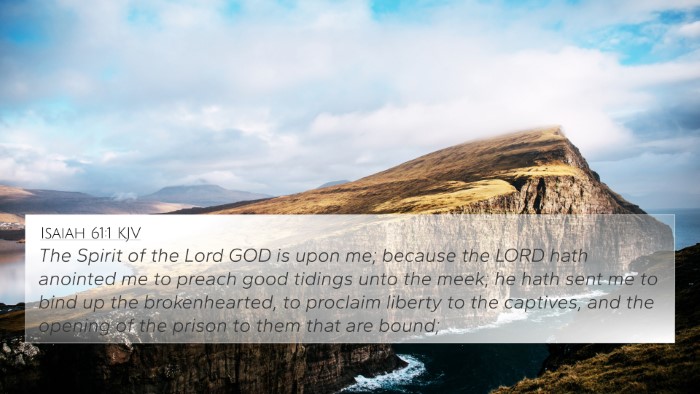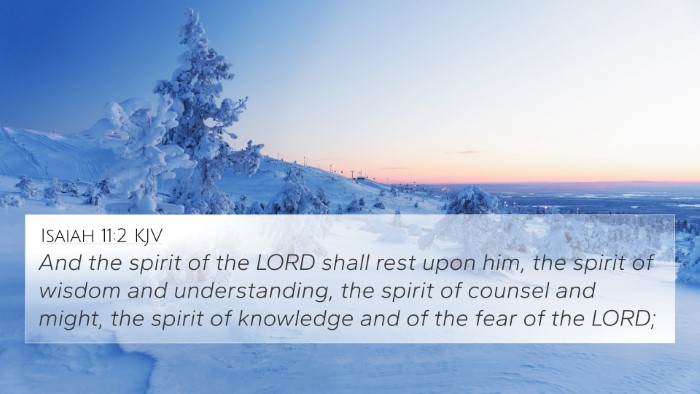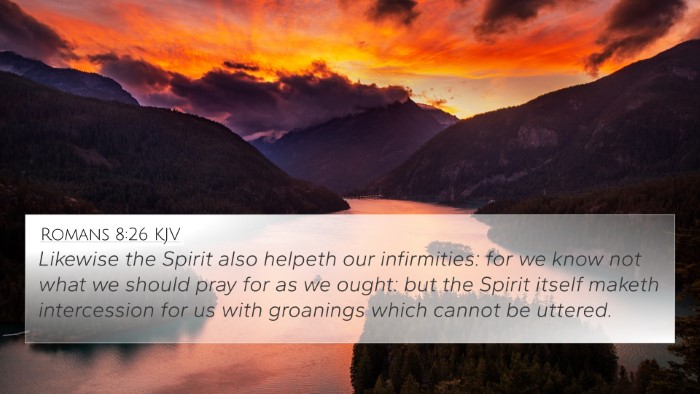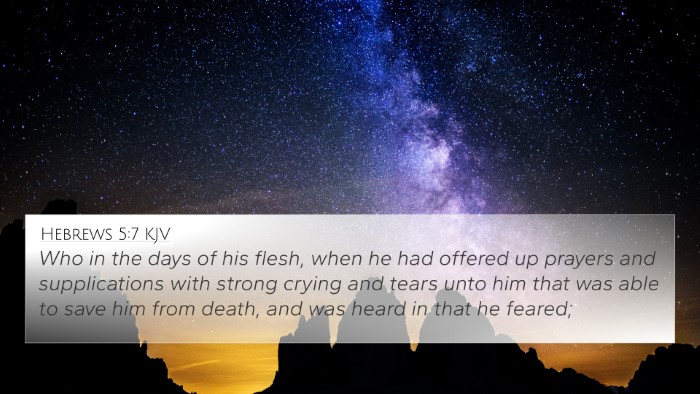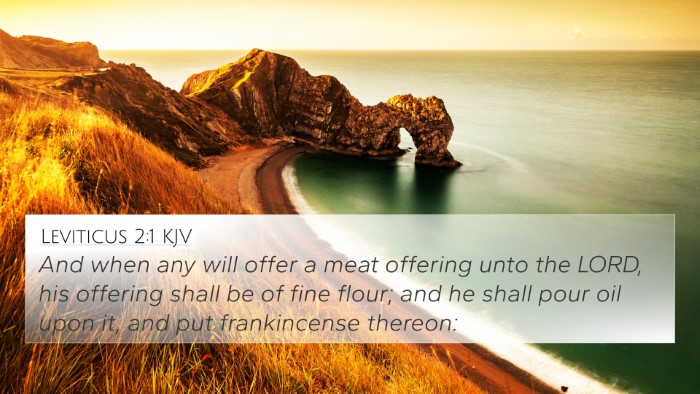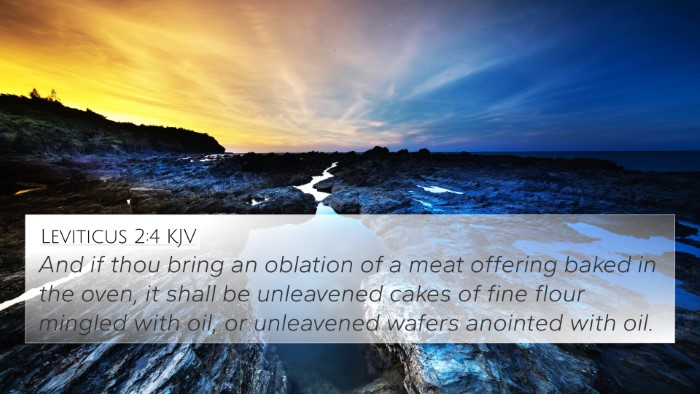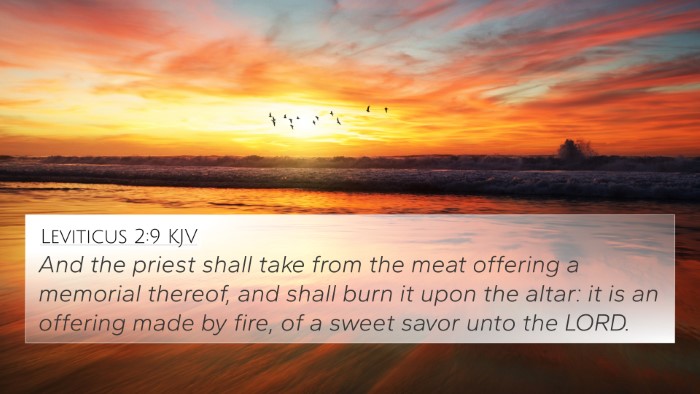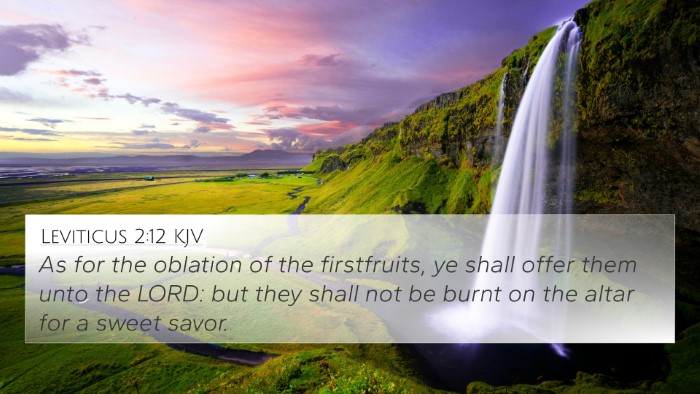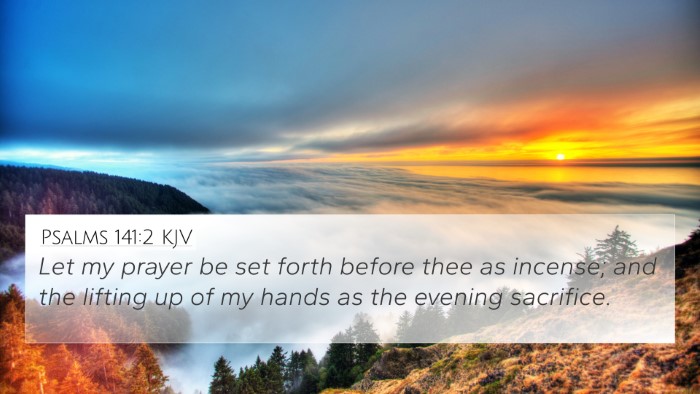Understanding Leviticus 2:16
Leviticus 2:16 states, "And the priest shall burn the memorial of it, part of the fine flour thereof, and part of the oil thereof, and all the frankincense thereof: it is an offering made by fire unto the LORD."
Summary of Context
The book of Leviticus outlines the laws and ordinances given to the Israelites. Chapter 2 describes the regulations concerning grain offerings, which were to be presented to the Lord. These offerings were acts of worship, acknowledging God's provision and seeking His favor.
Interpretation and Meaning
This verse highlights the important elements of the grain offering and its ritualistic significance:
- Memorial Offering: The term "memorial" signifies that the offering serves as a remembrance of the individual and their relationship with God. It calls to mind God's faithfulness and the requester’s gratitude.
- Elements of the Offering: The mention of fine flour, oil, and frankincense reflects the quality and purity required in offerings made to God. Each component symbolizes aspects of dedication and the sweetness of one’s worship.
- Role of the Priest: The priest's role in burning the offering underscores the mediator between God and the worshiper. This connection signifies how offerings are made acceptable to God through the priest’s actions.
- Offering by Fire: The fire represents the judgment of God and the purification process, refining the offering to be holy and pleasing to God, which serves both as an act of worship and as atonement.
Cross-References
To deepen the understanding of Leviticus 2:16, we can connect it with other relevant Bible verses:
- Exodus 29:18: This verse discusses the burnt offering, emphasizing the fire's role in the acceptance of offerings.
- Matthew 5:23-24: Here, Jesus refers to the importance of reconciliation before approaching God with gifts, illustrating the relational aspect of offerings.
- 1 Peter 2:5: This verse identifies believers as "living stones" who are being built up as a spiritual house and offers acceptable sacrifices through Jesus Christ.
- Hebrews 13:15: It encourages believers to continually offer a sacrifice of praise, framing worship as an ongoing offering to God.
- Romans 12:1: This passage urges believers to present their bodies as a living sacrifice, embodying the principle of dedicating oneself fully to God.
- Leviticus 1:9: Discussing burnt offerings, this verse elaborates further on the sacrificial system set forth in the Torah.
- Philippians 4:18: Paul references a sweet-smelling sacrifice, pleasing to God, linking back to the themes of offerings in Leviticus.
Connections Between Bible Verses
The concept of offerings evolves throughout the Bible, and Leviticus 2:16 provides a foundational understanding of what it means to offer to God:
- The transition from physical offerings in the Old Testament to spiritual sacrifices in the New Testament exemplifies the continuity of worship practices.
- Jesus' ultimate sacrifice fulfills the Old Testament requirements while illustrating a new covenant of grace.
- The correlation between Old Testament sacrifices and New Testament themes of worship portrays an enduring relationship between God and His people.
Thematic Bible Verse Connections
Important themes in Leviticus 2:16 can be identified and explored further:
- Worship: Offers both a communal and individual aspect, illustrating the heart of worship across testaments.
- Holiness: The requirement of purity in offerings links directly to God's nature and His expectations of His people.
- Atonement: The grain offering, while not a sin offering, still plays a role in the understanding of atonement and reconciliation.
- Gratitude: The act of offering expresses thankfulness to God and recognizes His providence.
Comparative Bible Verse Analysis
In comparing various offerings found in Leviticus, we gain a comprehensive view:
- Levitical sacrifices show a progression from grain to animal offerings, yet all have deep meaning and significance in their cultural and theological contexts.
- The recurring theme of sacrificial language across Old and New Testaments illustrates God’s desire for relationship over ritual necessity.
Cross-Referencing Biblical Texts
To further enrich our study, tools for Bible cross-referencing such as
- Bible Concordance: A resource for finding words and their occurrences in scripture.
- Bible Cross-Reference Guide: Helps identify related verses and themes.
- Bible Chain References: Connects verses in a thematic chain for insights across scripture.
Conclusion
Leviticus 2:16 is pivotal in understanding worship, sacrifices, and the relationship God desires with His people. By exploring its meanings and connections through various scriptures, one can appreciate the intricate web of God's communication through His word, showcasing the significance of every detail within the sacrificial system. As we reflect on how these elements interact, from Old Testament practices to New Testament theology, we find a rich tapestry that demonstrates God's unchanging nature and the continuity of His plan for salvation.
